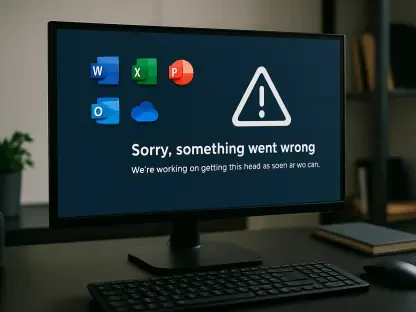The evolving nature of cybersecurity threats, alongside significant budgetary discussions, has sparked renewed interest in the role and future of the Cybersecurity and Infrastructure Security Agency (CISA). Recent proposals by President Trump’s administration aim to reduce CISA’s funding by a substantial $491 million, approximately 17 percent of its overall budget. The proposed cuts, justified by claims of CISA overstepping its role into online speech regulation, have raised fervent debates about the balance of security measures and potential censorship within the digital sphere. This article examines differing perspectives from experts and stakeholders to unpack the implications of this budget proposal.
Unraveling the Administration’s Budget Proposal: CISA in the Crosshairs
The proposed budget cuts suggest a shift in priority, reflecting criticism of CISA’s actions perceived as encroaching on free speech. Some argue that CISA’s focus on misinformation has less to do with national cybersecurity and more about controlling narrative and communication online. Proponents of the cuts suggest that the agency’s emphasis on election security and misinformation equates to censorship rather than protection. On the other hand, security analysts and lawmakers highlight the importance of CISA’s role in safeguarding the nation’s cyber infrastructure, including protection against election interference.
Amidst this, the budgetary debate underscores a critical look at CISA’s evolving responsibilities against the backdrop of a rapidly changing cyber landscape. Experts emphasize the need to sustain robust support for cyber defense initiatives even as governmental roles undergo scrutiny. They stress that a reduction in resources could weaken overall national security, putting critical systems at risk.
CISA’s Mission and Its Controversial Shift
The heart of the debate around CISA’s funding centers on its mission shift, balancing cybersecurity with speech regulation. Critics suggest that CISA’s involvement in misinformation management transforms its purpose from protection to that of censorship, dubbing it a part of the “censorship industrial complex.” This stance contrasts with others who feel CISA correctly expands its scope to address the growing threats of misinformation affecting national safety and security.
Looking at the numbers, CISA’s original budget request focused on bolstering defenses not only in government sectors but also within private industries deeply intertwined with national infrastructure. Industry leaders maintain that CISA’s protective role is vital in combating increasingly sophisticated cyber threats. In today’s threat environment, where misinformation and cyber attacks collide, CISA’s balanced approach remains a focal point of discussion.
Balancing Security and Freedom: Election Integrity vs. Information Control
For some observers, the conflicting dynamics between ensuring electoral integrity and maintaining freedom of speech epitomize the broader debate surrounding CISA. As the agency grapples with online threats that could disrupt democratic processes, its interventions often blur lines between necessary precautions and perceived overreach. Real-world incidents in the past have illustrated how misinformation can erode trust and incite conflict.
Security experts argue that the seeming tension between cybersecurity and free expression is amplified when transparency is lacking. As the agency navigates these waters, practical steps focusing on open communication and clear guidelines for online speech can mitigate concerns of censorship. The emphasis lies in developing frameworks that uphold both security and democratic values.
Innovations in Cyber Defense: Are We Doing Enough?
As cyber threats evolve, so must the strategies to counter them. Analysts highlight the importance of innovating continuously in cyber defense, as adapting to new threat landscapes is essential. While many regions adopt varied cybersecurity strategies, discrepancies in funding and implementation can hinder cohesive defense operations across the country. Critics of the proposed cuts fear that diminished funding could slow down or halt innovation necessary to stay ahead of threats.
These critiques challenge assumptions about how much is truly enough in the realm of cybersecurity innovation. As cybersecurity threats have grown more sophisticated, so must the defense mechanisms. A reduced CISA budget could potentially impede crucial advancements in threat detection and response capabilities.
Homeland Security’s Expanded Role: Implications for Other Agencies
With the Department of Homeland Security (DHS) receiving a significant budget increase, questions arise about how this shift affects CISA and other agencies like the TSA and FEMA. The expanded responsibilities and funding for DHS, primarily directed toward areas such as border security, might overshadow essential aspects of cyber defense, according to supporters of CISA.
Comparative analysis of potential future funding directions reveals an area of concern among cybersecurity professionals. Shifts in allocation could lead to a broad impact on the existing cybersecurity frameworks, urging a reevaluation of priorities across different sectors. Stakeholders stress a more integrated approach to ensure cybersecurity doesn’t take a backseat amid the broader security objectives.
Key Insights from the CISA Funding Controversy
While the outcome of the proposed cuts remains uncertain, the intense debate surrounding CISA funding brings forth several key insights. Industry leaders advocate for maintaining adequate resources to navigate the complex web of cyber threats effectively. They propose alternative strategies wherein strengthening partnerships and collaborations across various industries can offset potential budget limitations.
To translate these insights into concrete action, strategic measures focus on cultivating innovative defenses and enhancing adaptive techniques in cyber threat management. As businesses and governments align on common objectives, integrating knowledge and expanding capabilities become paramount in fortifying national cybersecurity.
Reaffirming Cybersecurity’s Critical Role in Our Digital World
The discussions surrounding CISA’s funding underscore the pivotal role cybersecurity plays in maintaining national safety and infrastructure integrity. Adjustments in budget allocations carry the potential to impact national security long-term, challenging policymakers to consider cybersecurity as a top priority amid evolving threats. Recently, stakeholders initiated calls for broader discourse on funding implications, encouraging cross-industry collaborations to strengthen defenses.
Ultimately, sustaining an informed and proactive approach involves recognizing cybersecurity not as a standalone issue but as a fundamental component of national defense in today’s digital age. Readers are encouraged to engage with ongoing discussions and explore comprehensive analyses for a deeper understanding of cybersecurity’s future landscape.









